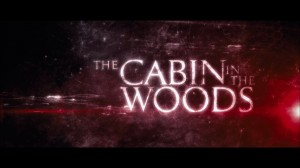
Propeller Head. That’s me.
Two superior-sounding comments on the Luther post.
New commenter Bert said:
Who was that guy in the Navy Yard? You can watch all the drama you want but make sure you catch the news. Thats where the real deal is taking place.
And ErisGuy said:
Unexpectedly having plenty of time to watch TV, I watched “Luther,” “Ripper Street,” “Whitechapel,” and “Copper.” None were worth a second episode. Thanks, though.
I guess I’m just a Inspector Lewis and Adam Dalgliesh kinda guy.
Sorry. I’m calling shenanigans on both of you. Bert acts like a hit and run guy who has never noticed that I talk about the direst things in current events on a regular basis. But his comment is useful as a reminder that people need diversion from the unrelievedly bad news we’ve been experiencing since “The Wonderful O” became president.
ErisGuy is in more trouble. Thing is, I’ve always thought ErisGuy was younger than I am. Either he isn’t, which is unfortunate for his expected lifespan, or he’s a fuddy duddy of the first order. He’s also not paying attention.
I have never recommended Copper. Which sucks because it’s Brits trying to dramatize American experience, which they never do well, and also because the new Brit production craze for filming everything in the dark is a snore.
As for dismissing Whitechapel, Ripper Street, and Luther, I’m pretty sure I pointed out that patience is required, what with the Brits taking time to develop character in series not intended to last endless years of 22 episodes a season but just a few episodes that have a distinct beginning to end arc. Giving up in the first episode is actually kinda sad. Hell, I already had to fall on the sword about giving up too quickly on Orphan Black.
The good news is that I have multiple recommendations for ErisGuy. The reboot of Ironside is fantastic. We know everything and more than we’d ever want to know in the first ten minutes of the pilot. Hawaii Five-Oh is back too. And new seasons of The Mentalist, Bones, Castle, and please let’s not forget Law & Order SVU, which give us the unique opportunity to watch a good looking woman age into menopause without ever cracking a smile.
As for preferring Inspector Lewis and Adam Dalgleish…. Huh? Inspector Lewis is a weak sequel to Inspector Morse, and (if Lake would be so kind to dig it up) I did a number on Inspector Dogleash that should be the last word on the subject. (Yeah, I actually read some of the books… I’m in a recovery group for it.)
Signing off now.
Sincerely,
PropellerHead
P.S. my wife dug up the version of Dalgleish I wrote for Shuteye Town 1999. Here it is:
Bounden Duty
By P.J. Dames
Chapter One
The little girl named Sally walked the three miles from school every day, across the bleak yellow wasteland which had once been fields but were now little more than the wide, unhealed scar of a strip mine. A mile-and-a-half into her journey stood the one tree which had struggled futilely out of the raped soil to put forth a handful of leaves that turned yellow and fell off almost immediately, as if sickened by the land itself. The tree was the one milestone Sally looked forward to, and she had acquired the habit of counting the number of footsteps to the tree, and then from the tree to the featureless granite cottage where her mother listlessly waited to give her a joyless greeting. The number of steps to the tree was usually between three thousand-one-hundred-nine and three thousand-one-hundred-thirteen. If anyone had counted as Sally had in her doomed young life, they would have found her body at step number three thousand-one-hundred-seventeen. As it was, the Constable wrote down that he had found the body of the strangled schoolgirl at a distance of about ten feet from a dying aspen tree. Her mother didn’t weep when they told her, but she made a dry, hacking, empty sound in her throat that could have been a sob.
Inspector Alan Dogleash of Scotland Yard stared gloomily out the window of his office. The view was drably anonymous, as if the slate-colored modern building to the north had no name or sponsor but had merely appeared one day, like some appropriate fungus of technology. Pedestrians and cars passed in front of its facade without looking, as if they knew it had no identity and could not look to it for affirmation of their own. The inspector thought of the first line of a new poem, so cheerless and grey that it needed to be written down at once, and he was in the act of looking for a pencil when his secretary told him about the request for assistance from Minetown, the barren industrial city where he normally took his holidays.
“What did they say?” he asked, trying to remember the fugitive line of verse before it escaped into the mildewed dungeon of his unconscious.
“They requested assistance,” said Mrs. Awful with some asperity. She regarded all questioning as interrogation and beneath her. “They said they could probably solve it themselves but they’re all too tired and they’re still getting used to their new anti-depressant medication.”
Dogleash sighed. Minetown would be the perfect break in his routine. He had never known any place more destitute of beauty and hope. Perhaps he could extract another book of poetry from the experience.
Constable Down greeted Dogleash with polite uninterest and told him the details, such as they were, over a cup of black, astonishingly bitter tea. There was a fireplace in Down’s office, and its small flame crackled mirthlessly in the grate, warming neither the room nor the toneless voice of the constable.
“She had been strangled with her own knee sock,” Down reported. “No sign of a struggle. And there should have been. The ground there is always muddy, and it’s a clay mixture that retains its shape for quite a time. I’ve tried to think what that might mean, but I don’t have the energy. Do you want a scone?”
“No,” Dogleash replied, absently.
“Good,” said Down. “I’m out of scones. Haven’t had any scones for months.”
“What about the mother?” Dogleash asked. “Did she have any ideas?”
“I haven’t seen her yet,” Down said. “I was waiting for you brainy blokes from Scotland Yard.”
Dogleash sighed, and then, just to do something different, he yawned.
The granite cottage where Sally’s mother lived had been built twelve thousand years before, and the only improvements that had been made since then were the addition of a cheap single-pane window, a wireless in the sitting room, and a trio of small ugly appliances in the kitchen.
“Do you want a scone?” asked Mrs. Crap.
“No,” Dogleash replied, absently.
“I’d love a scone,” Down offered, with unusual vigor.
“Don’t have any,” Mrs. Crap told him, as if she, too, had been sconeless for months.
“Did Sally say anything unusual the week before?” asked Dogleash.
“The week before what?” Mrs. Crap looked dully bewildered.
“The week before the murder,” Dogleash said, gently.
“Oh. She said she didn’t know what it was all about.”
“What?”
“Life.”
“Oh that,” said Constable Down. “That’s nothing.”
Dogleash wondered if it was really nothing. It was true that all the people he knew and all the people he ran into on and off duty were always thinking about life, and how miserable and pointless and tedious and unbearable it was, but he couldn’t quite remember if little girls spent their time engaged in such thoughts. Weren’t they somehow involved with dolls, and dress-up, and little-girl pursuits like that? He put the question to Mrs. Crap.
“Not Sally,” said her mother. “The only thing she ever talked about was life. She said she supposed life might be worthwhile to some people, but she knew she was English, and so the only thing she could do with her life was try to figure out exactly how bleak it was, in the most excruciating possible detail, for sixty or seventy years, unless some merciful stranger would do her the favour of strangling her with one of her own knee socks.”
“You’re right,” Dogleash conceded. “It was nothing.” Sally had been, after all, a typical, ordinary girl, and there would be no sudden break in this case. It would unfold like all other cases, for hundreds of pages of cheerless fires, soporific conversations over tepid cups of tea, and thousands of incredibly depressing British innuendoes about the pure suffocating meaninglessness of it all—in short, the whole long drawn-out routine that had made his crime-solving exploits so popular throughout the English-speaking world. Well, he supposed it was time to get on with it. He thanked Mrs. Crap and Arma virumque cano Troiae qui primus ab oris Laviniamque venit. Multa ille terris iactatis et alto. Dux femina facta. Forsan et haec olim meminisse iuvabit.
Arma virumque cano Troiae qui primus ab oris Laviniamque venit. Multa ille terris iactatis et alto. Dux femina facta. Forsan et haec olim meminisse iuvabit.
Arma virumque cano Troiae qui primus ab oris Laviniamque venit. Multa ille terris iactatis et alto. Dux femina facta. Forsan et haec olim meminisse iuvabit.
[The Greeking is just a stand-in for what everyone knows comes next.]












